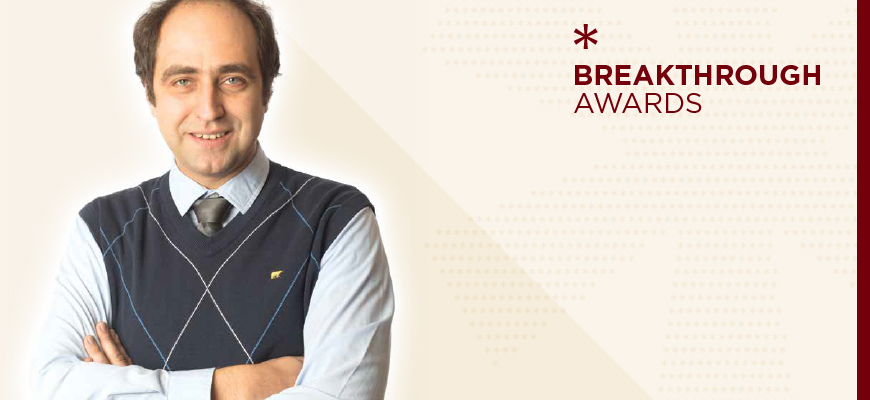
A catalytic conversion
Chemistry professors catalysis research attracts attention; his enthusiasm attracts students
Posted on: June 22, 2018; Updated on: June 22, 2018
By Chris Horn, chorn@sc.edu, 803-777-3687
Growing up in a small Russian town, Dmitry Peryshkov was fortunate to have a dynamic high school chemistry teacher who accelerated Peryshkov’s love of the science, much like a catalyst speeds up a chemical reaction.
Now Peryshkov is the one who is spurring on students with an enthusiasm that’s almost palpable as he talks about boron clusters, isohedron molecular architecture and carbon-hydrogen bonds. That enthusiasm transfers to his research lab, where Peryshkov’s focus on chemical catalysis has attracted major interest in inorganic chemistry. Many of his papers have been published in the field’s most prestigious journals, and he’s received an NSF CAREER Award and a Doctoral New Investigator Award from the Petroleum Research Fund.
“This research area is very exciting as it allows us to harness deep fundamental studies of chemical bonding and elementary steps of catalytic processes to solve practical challenges,” he says.
“I see the impact of my work here at USC as an amalgamation of multiple outcomes: a creative research and scholarship enriching chemical understanding of existing and novel systems, a mentorship and training of graduate and undergraduate students in the laboratory setting preparing them for current and future challenges, and developing and teaching chemistry courses for a broad and diverse student body of USC.”
Peryshkov has mentored four undergraduate and five graduate students in his four years at USC, involving them in his lab’s cutting-edge research. He has also developed two new multidisciplinary courses — “Chemistry of Renewable Energy” and “Chemistry of Transition Elements,” both of which are focused on the latest developments in the area of catalysis and sustainable energy generation.
This research area is very exciting as it allows us to harness deep fundamental studies of chemical bonding and elementary steps of catalytic processes to solve practical challenges.
Dmitry Peryshkov
Freshman chemistry, often the first college science course for students, offers Peryshkov a teaching challenge — a large cohort of students all hailing from different academic majors. But he takes it on with gusto, conveying to the students the basic importance of chemistry while guiding them through the material so they don’t get lost.
“He is dedicated to imparting the research skills and fostering the creativity and intellectual growth of his graduate and undergraduate students,” says USC chemistry professor Richard Adams. It’s an approach that’s working well for Peryshkov — and would probably make his high school teacher proud.